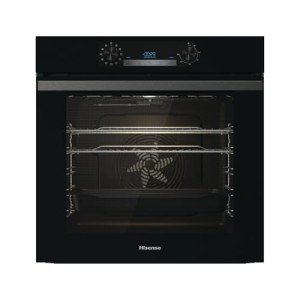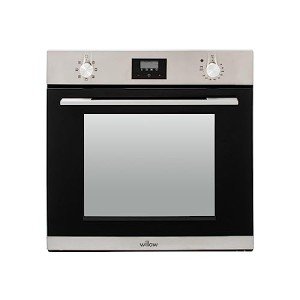7 Simple Tips For Rolling With Your Built-In Oven
페이지 정보
작성자 Valarie 작성일25-05-20 06:40 조회14회 댓글0건관련링크
본문
Understanding Built-in Ovens and Hobs: The Perfect Kitchen Combination
As modern-day cooking areas evolve, built-in appliances are becoming significantly popular for both performance and looks. Among these appliances, built-in ovens and hobs stand apart as necessary elements for any cooking lover or home cook. This article explores the benefits, functions, and considerations surrounding built-in ovens and hobs. It likewise addresses common concerns, providing a comprehensive guide to these kitchen fundamentals.

What are Built-in Ovens and Hobs?
Built-in ovens are integrated into kitchen cabinetry, creating a streamlined, seamless appearance. They can be found in various types, consisting of traditional, convection, and steam ovens, each dealing with various cooking techniques. Hobs, on the other hand, are the cooking surface areas that incorporate with the kitchen counter top. They can be gas, electric, or induction, allowing cooks to select based upon their cooking style and energy choice.
Benefits of Built-in Ovens and Hobs
- Space-Saving: Built-in models maximize kitchen area by eliminating the requirement for freestanding systems, producing an open and airy environment.
- Aesthetic Appeal: Their smooth design adds to a modern-day, structured look in the kitchen.
- Enhanced Functionality: Built-in ovens frequently come with innovative cooking innovation, offering a variety of functions like self-cleaning and smart controls.
- Personalization: Manufacturers use a range of surfaces and styles, permitting house owners to tailor their appliances to match their kitchen décor.
Kinds Of Built-in Ovens
1. Standard Ovens
Standard ovens utilize convected heat from the bottom and can be perfect for baking.
2. Convection Ovens
Convection ovens have a fan that circulates hot air, making sure even cooking. They minimize cooking time and are ideal for roasting meats or veggies.
3. Steam Ovens
Steam ovens use wet heat to prepare food, maintaining nutrients and flavors. They are becoming increasingly popular among health-conscious cooks.
4. Microwave Ovens
These ovens provide quick heating and cooking and serve numerous functions, Built-in ovens from reheating leftovers to baking.
Types of Hobs
1. Gas Hobs
Gas hobs utilize natural gas or built-in ovens gas for cooking. They offer immediate heat control, making them a favorite among professional chefs.
2. Electric Hobs
Electric hobs have solid or ceramic surface areas that heat up via electric coils. They are easy to clean however may take longer to heat than gas models.
3. Induction Hobs
Induction hobs use electromagnetic energy to straight heat pots and pans, using quick heating and energy performance. They cool down quickly and supply a much safer cooking experience.
Elements to Consider When Choosing Built-in Ovens and Hobs
When picking built-in built oven ovens and hobs, several factors ought to be thought about:
1. Area Limitations
Procedure the available area in your kitchen to ensure that the appliances will fit effortlessly into the cabinets.
2. Cooking Style
Consider your cooking habits. If you often bake, a stove may be ideal. On the other hand, induction hobs are excellent for security and performance.
3. Spending plan
Prices varies significantly based upon functions and brands. Setting a budget plan helps narrow down the choices.
4. Energy Source
Determine whether you want gas or electric appliances. This decision can impact cooking efficiency and energy expenses.
5. Visual appeals
Pick surfaces and styles that match your kitchen's design. Stainless-steel is a popular option for a modern-day appeal.
Contrast of Built-in Ovens and Hobs
| Function | Built-in Oven | Built-in Hob |
|---|---|---|
| Type | Convection, steam, and so on. | Gas, electric, induction |
| Cooking Versatility | High | Moderate to high |
| Cleaning Ease | Differs by design | Typically easy to tidy |
| Setup Style | Integrated in kitchen cabinetry | Flush with counter top |
| Energy Efficiency | Varies by model | Induction usually most effective |
FAQs About Built-in Ovens and Hobs
1. Are built-in ovens more costly than freestanding models?
Yes, built in oven uk-in ovens normally feature a greater cost due to their design and installation requirements. However, they typically offer advanced functions.
2. Can I replace my existing freestanding oven with a built-in design?
Yes, it's possible to replace a freestanding oven with a built-in model, but you might require to make changes to your cabinetry and kitchen layout.
3. What maintenance do built-in ovens and hobs require?
Regular cleansing is necessary. Lots of built-in ovens included self-cleaning functions. It's also important to keep the hobs without spills and grease.
4. Are induction hobs safe for households?
Induction hobs are considered much safer than gas or electric choices due to the fact that they only warm the cookware, lowering the risk of burns or accidents.
5. How can I make the most of the efficiency of my built-in oven and hob?
To maximize effectiveness, always pre-heat the oven when required, utilize the appropriate size pots or pans on the hob, and consider using the recurring heat from your hob after cooking.
Built-in ovens and hobs offer numerous benefits, making them popular options for contemporary kitchen areas. Their space-saving designs, advanced functions, and aesthetic appeal contribute to their high need. By thinking about elements like area, cooking style, and budget plan, property owners can choose the perfect combination of appliances that best match their culinary needs. Whether through gas, electric, or induction hobs, and a range of oven types, the right built in ovens uk-in kitchen appliances can improve the cooking experience while elevating the overall visual of the kitchen.

댓글목록
등록된 댓글이 없습니다.












